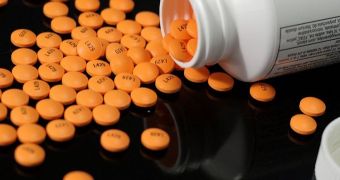According to the conclusions of a new scientific investigation, it would appear that a person's risk of developing pancreatic cancer at some point is significantly reduced if they use aspirin at least monthly.
Experts behind the work are however keen on explaining that this doesn't mean that taking aspirin will protect anyone against this condition. The drug should not be taken as a preventive agent unless by doctors' recommendations.
Details of the new findings were presented in Orlando, Florida, at the 102nd annual meeting of the American Association for Cancer Research (AACR). The conference takes place between April 2-6.
The large case-control study was carried out by expert Xiang-Lin Tan, PhD, MD, who holds an appointment as a research fellow at the Rochester, Minnesota-based Mayo Clinic.
Tan said at the meeting that these findings are only preliminary, and that additional work is needed before the result can be properly validated. He again underlined that people should not begin to use aspirin for this purpose at a large scale.
“The results are not meant to suggest everyone should start taking aspirin once monthly to reduce their risk of pancreatic cancer,. Individuals should discuss use of aspirin with their physicians because the drug carries some side effects,” Tan told attendants.
Aspirin, just like other common chemicals such as ibuprofen and naproxen, are a part of the non-steroidal anti-inflammatory drug (NSAID) class. Researchers with the new study say that the protective effect was not discernible with any of the other substances in this category.
On the other hand, the effect was present in individuals who were prescribed low doses of aspirin as a means of preventing the emergence of heart diseases. The research was carried out on a number of 904 patients with pancreatic cancer, and also on 1,224 healthy control subjects.
Among participants, those who took aspirin at least once per month had a 26 percent lower risk of developing pancreatic cancer. The work was conducted only on patients older than 55.
Tan said that people who took aspirin for heart condition prevention had a 35 percent lower chance of developing this form of cancer. “This provides additional evidence that aspirin may have chemoprevention activity against pancreatic cancer,” the expert explained.
But he added that self-medication will probably not work in this circumstance. Experts need to study the issue further, and then produce new therapies that the general public could use safely, and with no negative side-effects.

 14 DAY TRIAL //
14 DAY TRIAL //